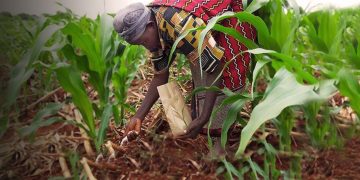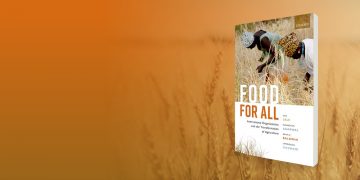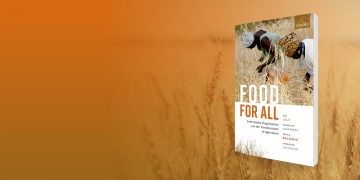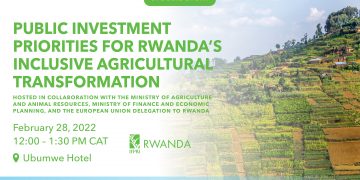POLICY SEMINAR
Fertilizer Availability and Affordability
Rising fertilizer prices, aggravated by the invasion of Ukraine, will impact availability & productivity globally. Can government fertilizer subsidies provide a safety net & protect soil health?
Policy Seminar: Retail Food Prices at the Country-Level
Retail Food Prices at the Country-Level
March 29, 9:30 - 11:00 AM
How global commodity prices are transmitted at the national level and what other country-specific aspects influence retail prices.
Book Launch Food for All: International Organizations and the Transformation of Agriculture
Book Launch
Food for All: International Organizations and the Transformation of Agriculture
Mar 22, 9:30 - 11:00 (EDT)
This event features a panel discussion on global governance, food security and nutrition, poverty reduction, and gender.
Book Launch and Policy Seminar: COVID-19 & Global Food Security: 2 Years Later
Book Launch and Policy Seminar
COVID-19 & Global Food Security: 2 Years Later
From research and analysis over the last 18 months, "COVID-19 & Global Food Security: Two Years Later" presents lessons learned on food security and food system resilience throughout the pandemic.
Research Seminar: Public Investment Priorities for Rwanda’s Inclusive Agricultural Transformation
Join us at 12:00pm CAT at the Ubumwe Grande Hotel for the research seminar on Public Investment Priorities for Rwanda's Inclusive Agricultural Transformation: Evidence from Rural Investment and Policy Analysis modeling. This seminar will highlight findings from a new study on public spending priorities conducted by the International Food Policy Research Institute (IFPRI) with support from the Ministry of Agriculture and Animal Resources (MINAGRI). The study specifically assesses the contribution of public spending on agriculture under PSTA 4, focusing both on the contributions during the first half of the plan (2018-21) and the remaining period (2022-24).




